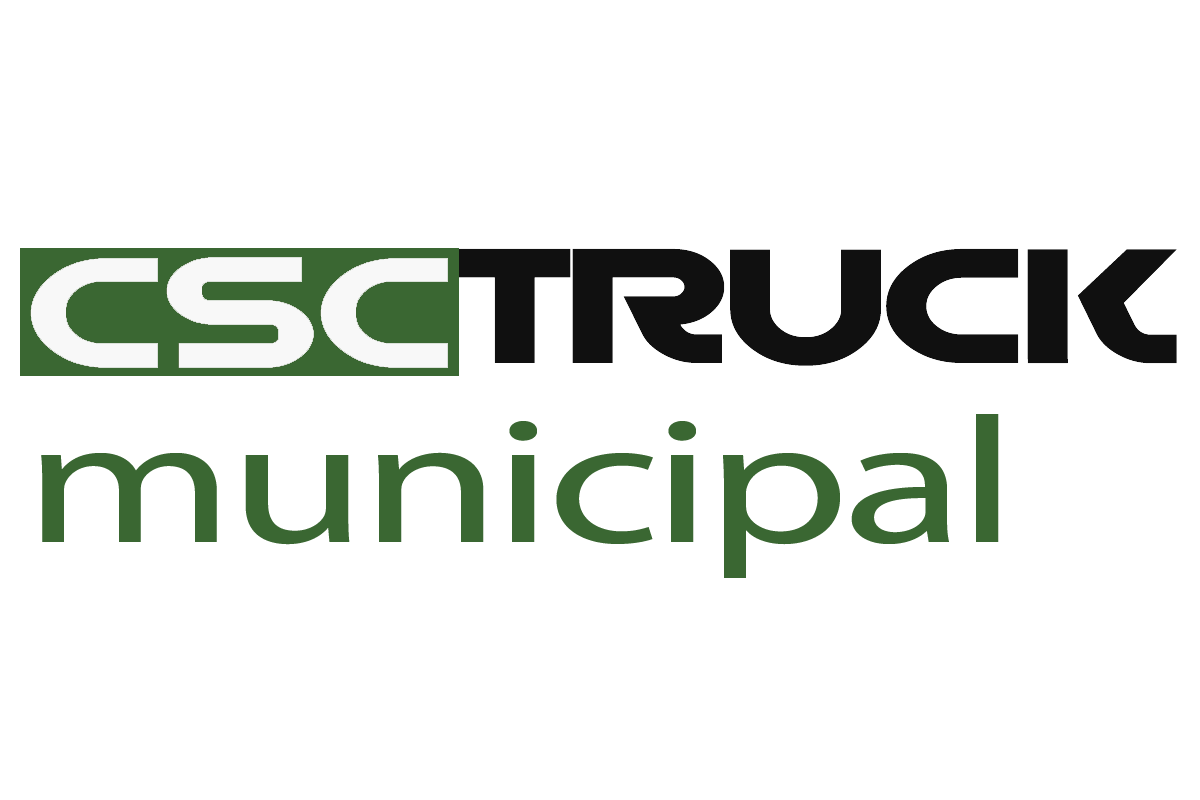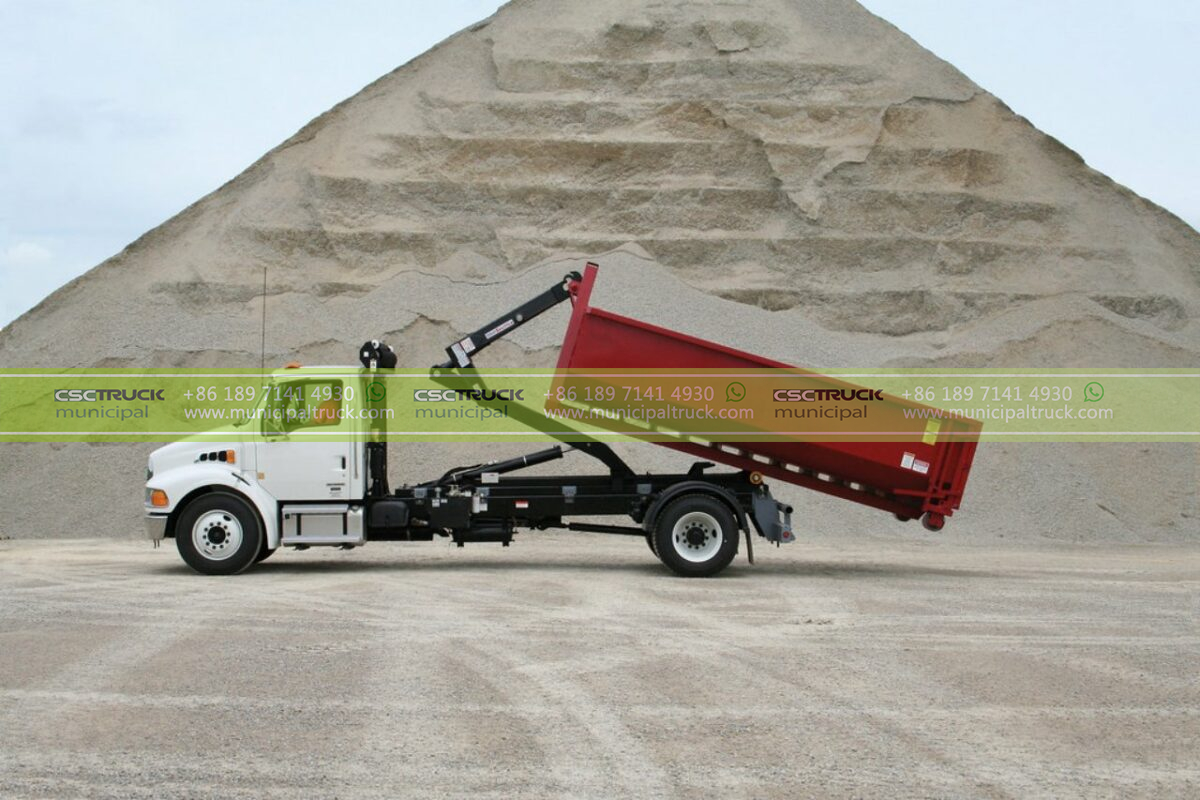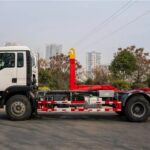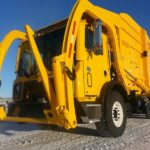The modern urban landscape is a complex network of bustling streets, towering skyscrapers, and a constant flow of people and goods. With such activity comes the inevitable generation of waste, necessitating efficient waste management systems. Among the various waste management vehicles that play a pivotal role in maintaining the cleanliness and order of cities, hook loader garbage trucks stand out as a versatile and indispensable tool. These trucks are designed to swiftly load and unload containers filled with waste, contributing significantly to the sanitation infrastructure. However, ensuring the smooth operation and longevity of hook loader garbage trucks requires meticulous care and maintenance.
The Heart of the System: Understanding Hook Loader Garbage Trucks
Hook loader garbage trucks, also known as roll-off trucks or hook lift trucks, are characterized by a hydraulic hook-arm mechanism mounted on the chassis. This mechanism enables the truck to pick up and drop off large waste containers with ease. The hook arm engages with the container’s hook or roller, allowing for efficient loading, transportation, and unloading. Their flexibility in handling different container sizes and types makes hook loader trucks a preferred choice for waste collection in urban and industrial settings.
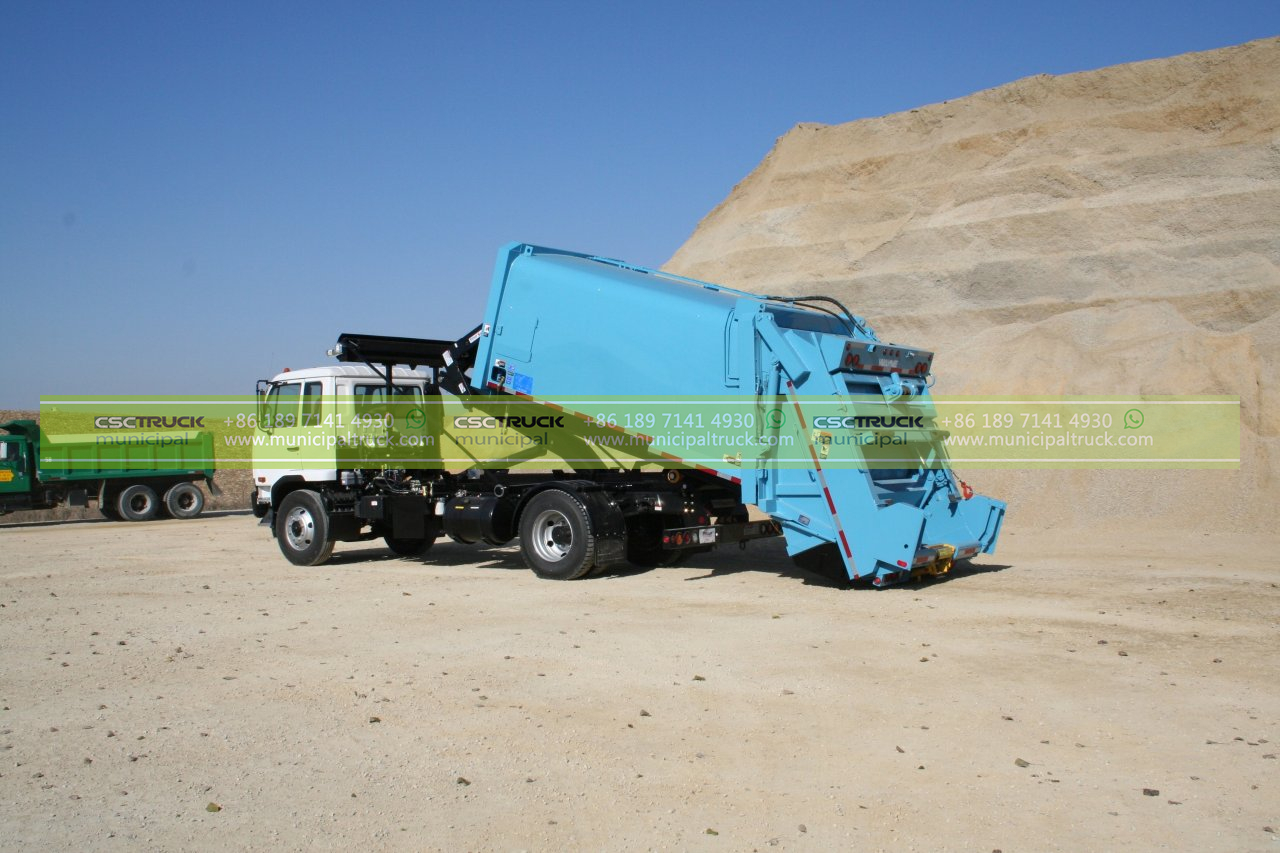
Importance of Regular Maintenance
Like any complex machinery, hook loader garbage trucks require regular maintenance to operate at peak efficiency. Neglecting maintenance can lead to reduced performance, increased downtime, and even safety hazards. Here are some key aspects of hook loader truck maintenance:
1. Hydraulic System Care:
The hydraulic system is the backbone of hook loader trucks, responsible for the precise movement of the hook arm. Regular checks of hydraulic fluid levels, filters, and hoses are essential to prevent leaks and ensure smooth operation. Routine hydraulic system maintenance can prevent costly breakdowns and extend the lifespan of the truck.
2. Structural Inspections:
The structural integrity of the hook loader system is paramount for safe and efficient operation. Regular inspections should be carried out to identify any signs of wear, corrosion, or fatigue in the hook arm, lifting mechanism, and container locking system. Timely repairs or replacements can prevent accidents and operational disruptions.
3. Lubrication:
Proper lubrication of moving parts is vital to reduce friction and wear. Lubricate all pivot points, hinges, and sliding components to maintain smooth and precise movement. This simple maintenance task can significantly extend the life of critical components.
4. Electrical and Controls:
Modern hook loader trucks often feature sophisticated electronic control systems. Regularly inspecting and testing these systems ensures that all functions, such as container locking and lifting, are working as intended. Addressing electrical issues promptly can prevent operational errors and improve overall efficiency.
5. Tire and Chassis Maintenance:
The truck’s tires and chassis are subjected to heavy loads and harsh road conditions. Regular tire inspections, rotations, and replacements, when necessary, are essential for safe driving and load stability. Additionally, maintaining the chassis, including the engine, transmission, and brakes, is crucial for the truck’s overall performance and safety.
6. Operator Training:
Equally important as mechanical maintenance is the training of the truck operators. They should be well-versed in the proper operation of the hook loader system, safety protocols, and troubleshooting minor issues. Well-trained operators can help prevent unnecessary wear and tear on the equipment.
Benefits of Diligent Maintenance
Investing time and resources in hook loader truck maintenance yields numerous benefits for waste management operations and the overall urban environment:
1. Increased Reliability:
Regular maintenance minimizes unexpected breakdowns and reduces downtime. This reliability translates to consistent waste collection schedules and improved efficiency in waste management services.
2. Extended Lifespan:
Hook loader trucks are significant investments for waste management companies. Proper care and maintenance can extend their operational lifespan, maximizing the return on investment and reducing the need for premature replacements.
3. Cost Savings:
Addressing minor issues through routine maintenance can prevent them from escalating into major, costly repairs. Additionally, well-maintained trucks consume less fuel and experience fewer operational inefficiencies, leading to cost savings in the long run.
4. Safety Enhancement:
Safety is a top priority in waste management operations. Regular maintenance ensures that all components are in optimal condition, reducing the risk of accidents caused by equipment malfunctions.
5. Environmental Impact:
Efficient waste management contributes to a cleaner and healthier urban environment. Well-maintained hook loader trucks can operate with lower emissions and reduced fuel consumption, minimizing their ecological footprint.
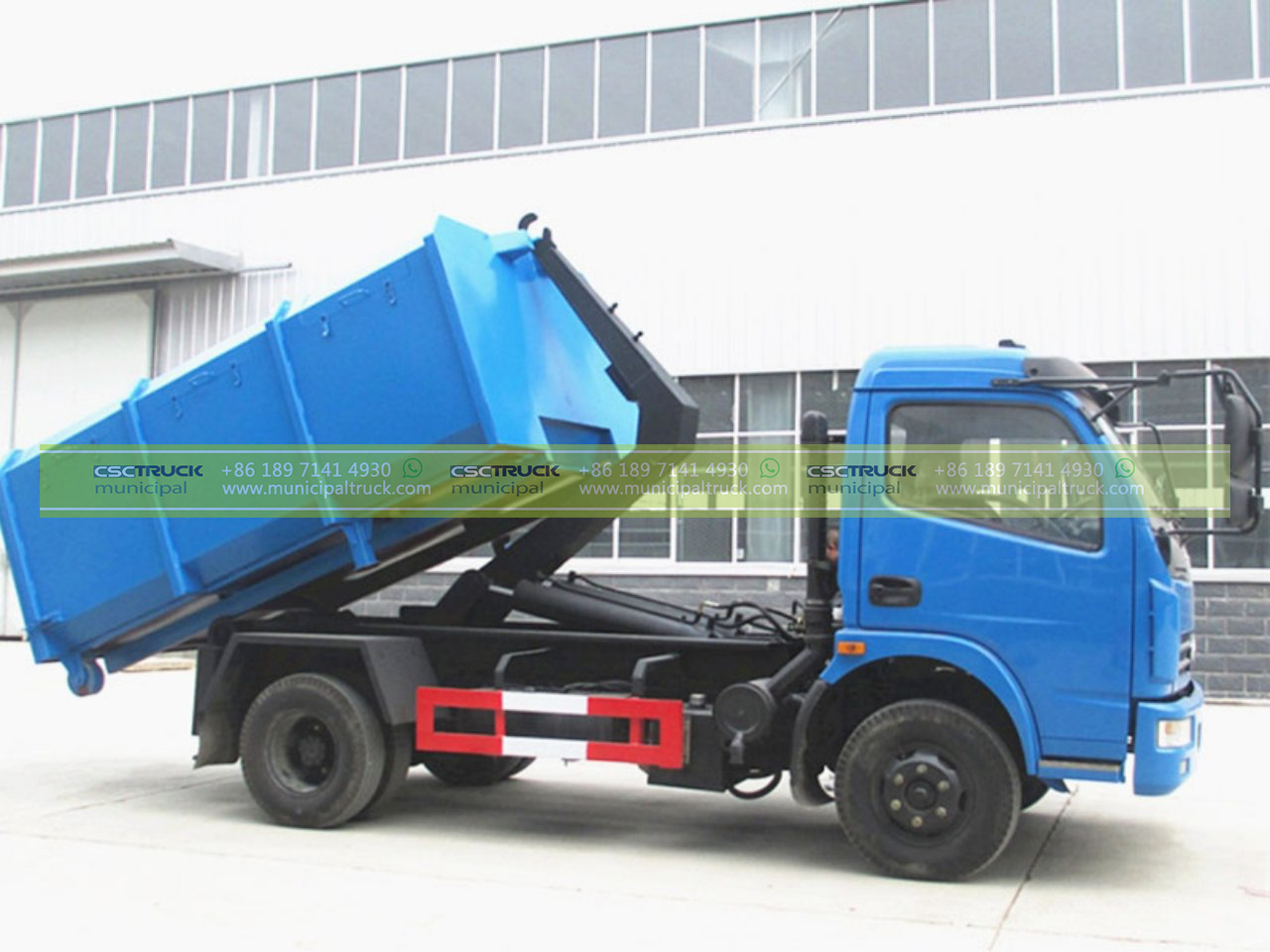
Embracing Technological Advancements in Hook Loader Truck Care
As industries continue to evolve, so does the technology that supports them. The world of waste management is no exception. Modern hook loader garbage trucks are now equipped with advanced technological features that not only enhance their performance but also streamline maintenance processes. Let’s delve into some of these technological advancements:
1. Telematics and GPS Systems:
Telematics and GPS systems have revolutionized fleet management, including hook loader garbage trucks. These systems provide real-time data on vehicle location, fuel consumption, engine performance, and more. With this information at their fingertips, maintenance teams can schedule servicing based on actual usage and identify potential issues before they escalate.
2. Predictive Maintenance Software:
Predictive maintenance software utilizes data analytics and machine learning to predict when equipment components are likely to fail. By analyzing various parameters, such as vibration, temperature, and usage patterns, these systems can recommend maintenance actions before a breakdown occurs. This proactive approach minimizes downtime and maximizes operational efficiency.
3. Remote Diagnostics:
Remote diagnostics technology allows technicians to monitor the health of hook loader trucks from a distance. Using sensors and connectivity, they can diagnose issues and even perform certain repairs remotely. This not only saves time but also reduces the need for trucks to be taken out of service for minor problems.
4. Maintenance Tracking Apps:
Maintenance tracking apps provide an organized platform for scheduling, documenting, and tracking maintenance tasks. Operators and maintenance teams can access these apps on mobile devices, making it easy to stay updated on the maintenance history of each truck and ensuring that no tasks are overlooked.
5. IoT Integration:
The Internet of Things (IoT) is making its mark in various industries, including waste management. IoT-enabled sensors can monitor factors like tire pressure, hydraulic fluid levels, and engine health in real-time. This continuous monitoring enables early detection of anomalies and prevents potential breakdowns.
6. Augmented Reality (AR) for Training and Troubleshooting:
Augmented reality technology is being used to train operators and maintenance personnel. AR overlays digital information in the real world, making it possible to guide individuals through complex tasks, troubleshoot issues, and perform maintenance procedures accurately.
The Future of Hook Loader Truck Care
Looking ahead, the integration of these technological advancements is likely to redefine hook loader truck care in several ways:
1. Data-Driven Decision Making:
Data collected through telematics, predictive maintenance, and IoT sensors will play a crucial role in decision-making processes. Maintenance schedules will be fine-tuned based on real-time information, minimizing unnecessary downtime and optimizing maintenance efforts.
2. Increased Efficiency and Accuracy:
Advanced technologies will enhance the accuracy and efficiency of maintenance tasks. Technicians will have access to detailed diagnostic information, enabling them to address specific issues swiftly and effectively.
3. Reduced Environmental Impact:
Efficient maintenance practices driven by data can lead to reduced fuel consumption, emissions, and resource wastage. This aligns with the growing emphasis on sustainable practices within the waste management industry.
4. Integration with Smart Cities:
As cities become smarter, waste management systems will integrate with broader urban infrastructure. Hook loader trucks equipped with advanced technology will seamlessly interact with waste collection schedules, traffic flow, and environmental monitoring systems.
5. Customization and Adaptability:
Technology will enable the customization of maintenance approaches for each truck based on its usage patterns and individual requirements. This tailored approach will optimize maintenance efforts and resources.
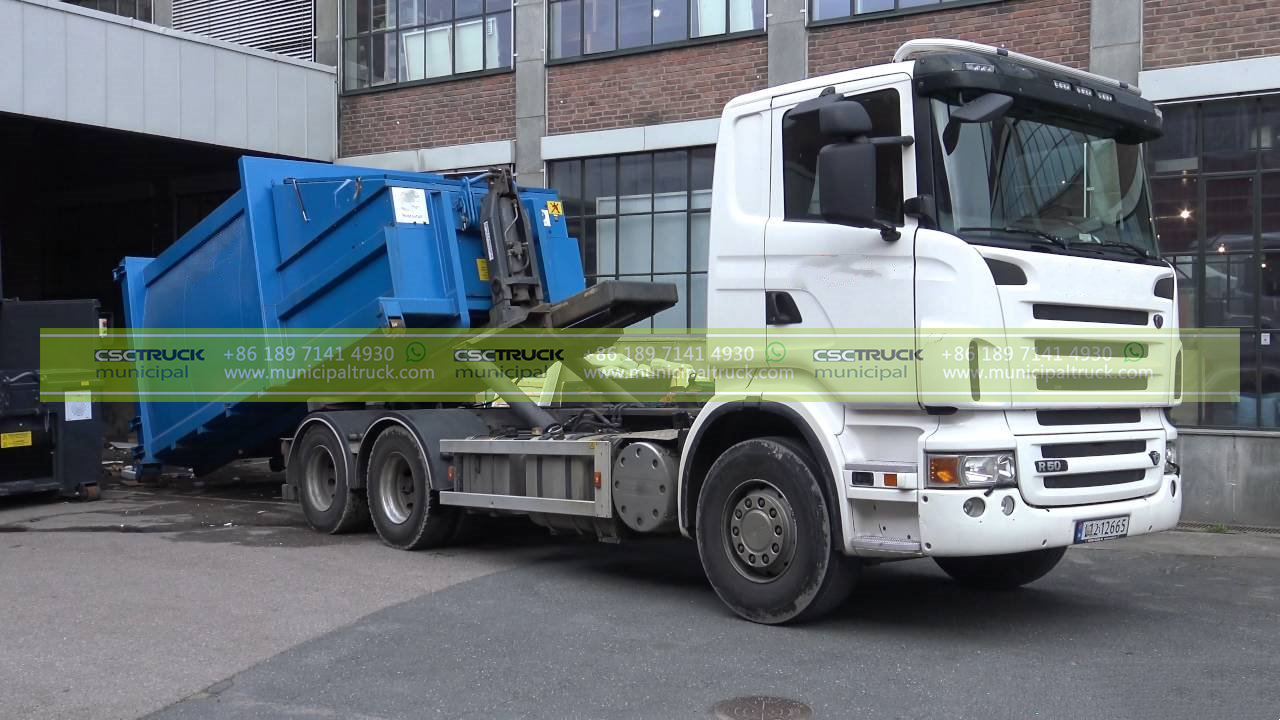
In conclusion, the care and maintenance of hook loader garbage trucks have evolved significantly thanks to technological advancements. Telematics, predictive maintenance, remote diagnostics, and other cutting-edge tools have streamlined maintenance processes, increased operational efficiency, and improved overall fleet management. As technology continues to advance, the future of hook loader truck care promises increased reliability, reduced downtime, and a more sustainable approach to waste management. By embracing these innovations, waste management companies can ensure that their hook loader trucks operate at peak performance, contributing to cleaner and more efficient urban environments.
Contact us for this municipal truck or similar trucks: [email protected] Call us or What's APP us: +86 189 4292 3930
